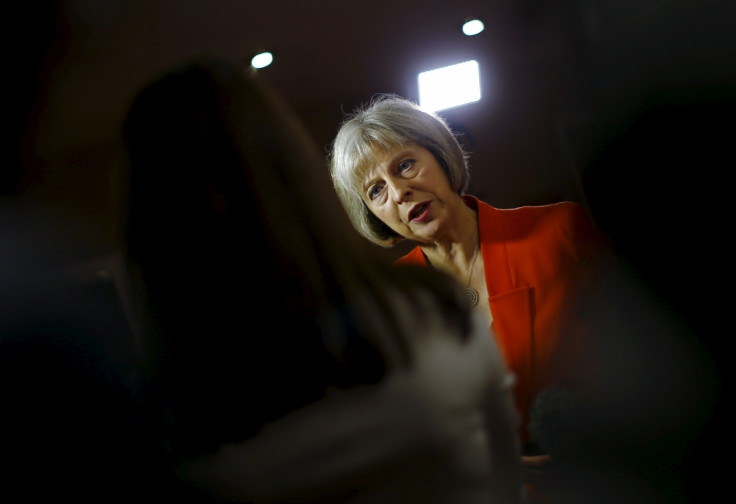UK migrants: IoD blasts 'pandering' Theresa May ahead of Tory conference immigration speech

Theresa May has been accused by a top business body of "pandering" to anti-immigration campaigners ahead of a major speech by the home secretary on 6 October. Simon Walker, the director general of the Institute of Directors (IoD), told the Conservative minister that skilled migrants are vital to the UK's economy.
The remarks come before May's speech to the Tory party conference in Manchester, where she is expected to claim that social cohesion is "impossible" with high levels of immigration. The home secretary, who has been tipped as a future Conservative leader, will recommit to David Cameron's "tens of thousands" net migration pledge.
But the Conservative administration has so far failed to meet the target, with more than 300,000 migrants coming to the UK per year according to Office for National Statistics (ONS). Walker, who spoke at the IoD annual convention in London, also warned Cameron of "accidentally" breaking away from Brussels by delaying the referendum on Britain's membership of the EU.
Walker urged the prime minister to consider holding the historic vote "sooner rather than later" in a bid to avoid a Brexit.
"There are domestic factors that should encourage the prime minister to commit to a referendum sooner rather than later. By 2017 this government will have implemented spending cuts that, while necessary, will not be popular," he said.
"The third year of an election cycle is a difficult time for any administration. There is a real possibility that a 2017 referendum would be a short-term judgment on the government: a chance to whack the political elite."
He added: "If, after deliberation, the public votes to leave Europe, our members will have to accept it, and the period of uncertainty for business that will follow. They will be less philosophical if carelessness and domestic discontent led to an 'accidental Brexit'.
"As with all votes, the IoD will not be telling anybody what they should think as we approach the referendum. But I have rather less compunction in suggesting to everybody that they should be focusing squarely on the real issue – would we be better or worse off leaving the EU."
The director general made the comments during his speech at the IoD annual convention in London. The remarks followed Cameron's promise to hold the referendum before the end of 2017. Some reports have suggested that the vote could come as early as April next year, but the ongoing refugee crisis has dramatically changed the political landscape across Europe.
The development is significant for Cameron, who wants to block EU migrants from claiming benefits in the UK for up to four years. The prime minister has faced opposition on the continent but Philip Hammond has suggested the humanitarian crisis may soften the minds of some EU leaders.
"The fact that Europe is facing the challenge... of migration flows within Europe of newly arrived migrants, is perhaps focusing the attention of some people, in a way that hadn't been focused before, about the challenges that migration at scale presents. And that's been our argument all along," the foreign secretary told Reuters on 23 September.
Cameron, who is expected to campaign to keep the UK within the EU, will also be keeping a close eye on the forthcoming Polish parliamentary elections, which will be held on 25 October. The right-wing Law and Justice party are ahead in the opinion polls and are set to replace the liberal/conservative Civic Platform party.
Back in Britain the opinion polls are neck-and-neck over the EU referendum. The latest survey from YouGov, which questioned more than 2,700 people between 17 and 22 September, put Leave three points ahead of Remain (41% versus 38%, respectively).
© Copyright IBTimes 2025. All rights reserved.






















